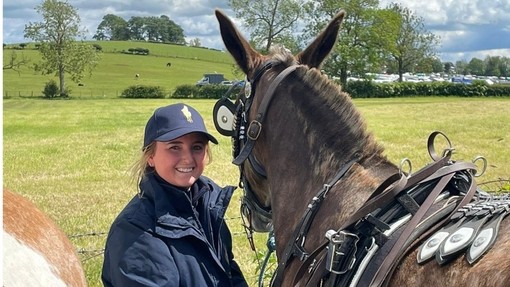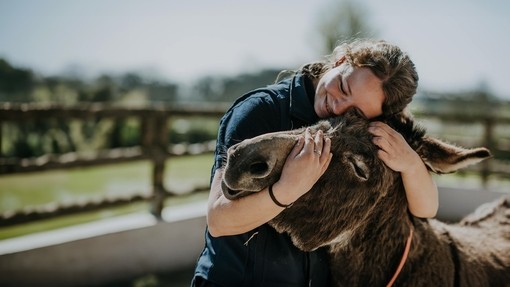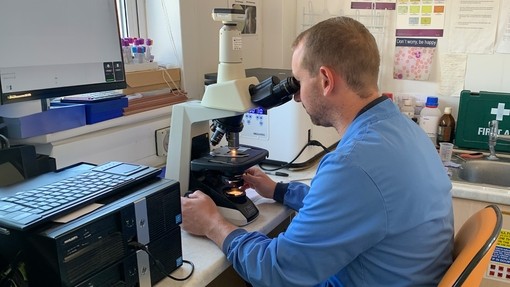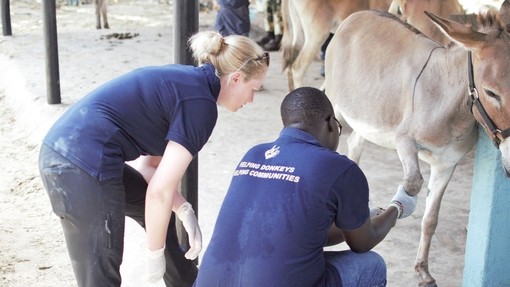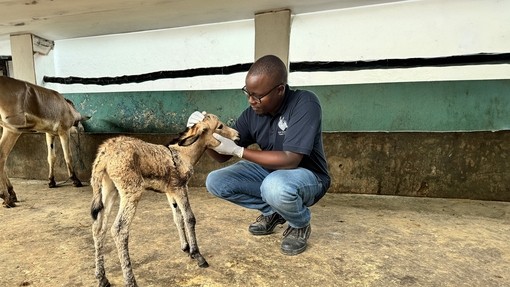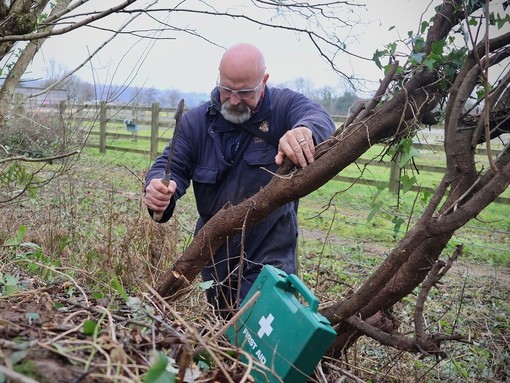
Discover what a day in the life of an ecologist at The Donkey Sanctuary looks like
With our UK farms and centres occupying over 1,200 acres of farmland in Devon and Dorset, our land is home not just to thousands of resident donkeys but to a wide range of wildlife.
At The Donkey Sanctuary we believe in a One Welfare-based approach. Similar to One Health, it acknowledges the interconnectedness of animals, the environment and humans but elevates the level beyond basic health concerns to include the wider measures and benefits of welfare.
Recognising the role we play in protecting and enhancing Britain’s biodiversity, we recruited our first wildlife related role in 2015 and today we have a dedicated team of ecologists that deliver our conservation programme.
Ecology and Conservation Officer Steve Ayres, who has worked in conservation for over 30 years, takes us “into the wild” and explains how our unique donkey-created microhabitats are benefiting wildlife, people and planet.
“When I left university in 1991 with a degree in Biology and Environmental Pollution I knew that the thing that had always interested me was the natural world, and wondered how I could turn that into a job!
“I quickly realised that I needed hands-on skills, so started volunteering at a Country Park in Devon and shortly after got my first job as a ranger. Since then I’ve always been immersed in nature – from Site Ranger to Bird Warden to managing my own national nature reserve on the Torbay Coast. I loved knowing that as well as the ecological impact, my work involved a lot of interaction with visitors and the public; giving thousands of schoolchildren access to the natural world and setting dozens of young people on a career in conservation.”
“Wet bits and woodlands”
“I’d always had a fondness for The Donkey Sanctuary, having done a chainsaw course on site, and I thought donkeys would be interesting to work with. I’d already instigated some conservation grazing schemes on my reserves with goats and ponies, and saw this as an opportunity to continue this kind of regenerative activity in a really unique way.
“As an ecology team of five staff we all do a bit of everything, so no two days are the same, but we each have our individual specialisms. I mostly deliver direct management of “wet bits and woodlands”, lead volunteer group and undertake our bird surveys. My day-to-day work could involve making nest boxes, scrub cutting, butterfly surveys hedge-laying and tree planting – depending on the time of year.
“Much of our work is supported by a wonderful group of conservation volunteers, who are incredibly generous with their time and energy. We try to offer lots of opportunities to learn new skills, connect with nature, and participate in activities that benefits donkeys, wildlife and improve habitats.”
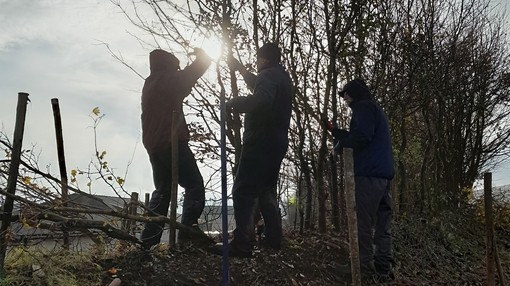
Improving our habitats for wildlife
“We have a conservation “site” or project area at every one of our farms in Devon. Sites like Paccombe Wood, which is an ancient semi-natural woodland, are too stony and wet for donkeys but have huge value for wildlife. Bats and dormice inhabit the tree holes, birds feed and nest in the trees and shrubs, and fungi break down the rotting wood. Parts of the wood are smothered by non-native invasive Rhododendron, which thanks to a significant volunteer effort we are slowly clearing to promote native flowers like bluebells, sanicle and hazel bushes.
“At our Brookfield farm we manage a few areas of damp rushy grassland through rotational cutting, which involves cutting different areas at different times to ensure there are refuge habitats available through the year. These grasslands are full of orchids and important refuge areas for reptiles and amphibians.
“Clearing bracken by hand from grassland sites, such as Weston Valley at our Slade House Farm, helps exciting species like the Wasp Spider to flourish. Wasp Spiders look amazing – like a tropical spider you’d have no idea was in the UK! They have an interesting egg case and web design. They are also a loose indicator of well-developed grassland as they thrive in long tussocky grass that is not cut or over-grazed, with a good population of grasshoppers as their food source.
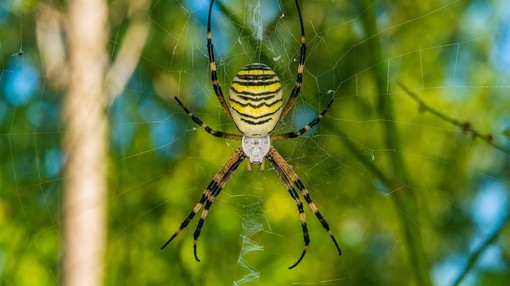
“Meanwhile, Axnoller Pond is home to water voles and our management is partly directed at enhancing the banks and surrounding mini meadow to offer them tussocky growth to hide from predators.
“One of the really nice things about working in the ecology team is that I get to visit every farm at all times of the year and see the fruits of our labours – winter hedge planting becoming summer butterfly counts, for example.”
Biodiversity boosted by donkey power
“Constantly upskilling as an ecologist is also really exciting, ensuring The Donkey Sanctuary is compliant with regards to protected species disturbance.
“The ecology team provides expert oversite for work on buildings and features like hedge banks, to ensure protected species aren’t harmed during repair and removal operations. At our Devon sites these species are most likely bats and the Hazel Dormouse, both of which are protected by law. I am currently working towards my dormouse and bat license, which will allow me to carry out inspections for these species.
“The most challenging part of my job is doing justice to all the fantastic sites we cover and getting my head around a different way of thinking. In my previous roles, livestock had been the “tool” to drive the habitat in a certain direction. Now I look at the habitat and decide if it is suitable for donkeys and how we can improve it for them in a sustainable way; poisonous species might need to be removed, drainage might need to be improved or browse, shade and shelter provided in the form of trees and hedges.
“A good example is a Nature Reserve Manager might use livestock to reduce the dominance of bracken to make way for wildflowers, given that they trample it as they graze. A Sanctuary Farm Manager will ask us to remove the bracken so that donkeys can graze the field safely. Both will improve biodiversity, but the management choice is refocussed.
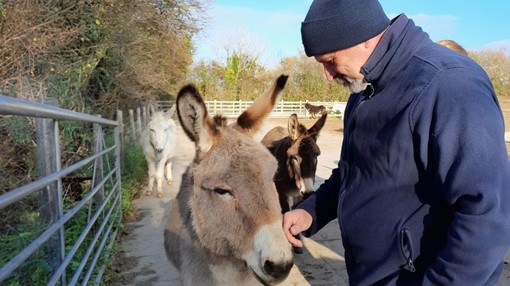
“Donkeys also do their bit to support the management of the land and create a diverse environment. Donkeys are ideal conservation grazers because they will readily tackle woody, prickly vegetation and coarse grasses, rather than select flowers, as sheep tend to do.
“Everyone has so much knowledge to share here – we are a real bunch of wildlife nerds!”
Find out more about our donkey-facing teams
Share this page
Tags
- Blog

